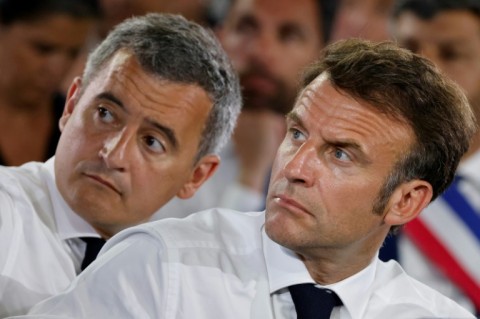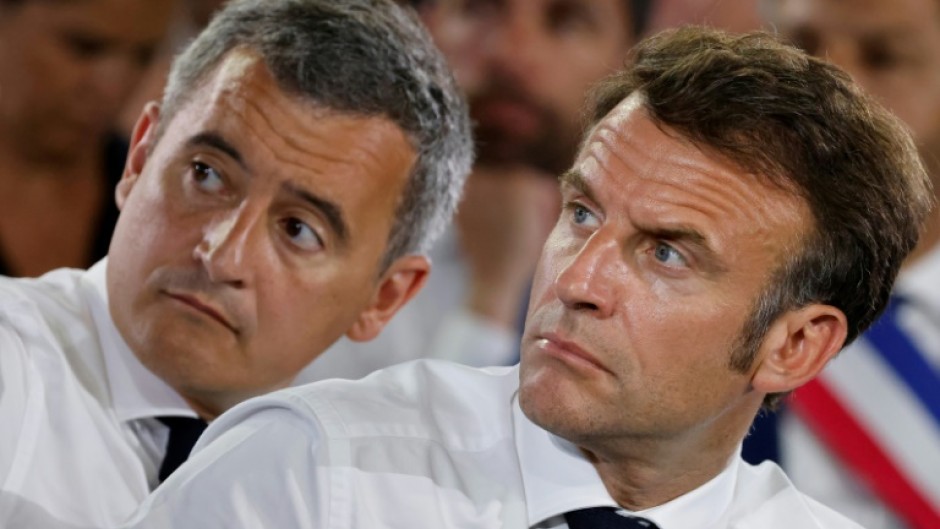PARIS - France's government insisted Tuesday it would implement tough measures against illegal migrants as it battled a political crisis following the rejection of its flagship immigration bill in the lower house of parliament.
In a surprise move on Monday, members of the opposition joined forces in parliament's National Assembly to vote down the controversial legislation without even debating it, sparking a political crisis.
The rejection of one of the government's flagship initiatives is a humiliating defeat for French President Emmanuel Macron who does not have a majority in parliament and comes amid a heated debate in society around immigration and security.
Advocacy groups have criticised the bill which seeks to toughen the country's immigration law, saying France relies on migrants including undocumented workers in a lot of industries.
On Tuesday morning, Macron held a crisis meeting with Prime Minister Elisabeth Borne and key ministers at the Elysee, deciding to maintain its bid to pass the bill and send the legislation back to a parliamentary committee, the government said.
According to a government source, Macron at a later cabinet meeting denounced the "cynicism" of members of the opposition, accusing them of seeking to "obstruct the country."
"We need a law on integration and immigration," Macron was quoted as saying.
Macron rejected on Monday the offer from Interior Minister Gerald Darmanin, who has spearheaded the bill, to step down, instead ordering him to find new ways to break the deadlock and push the legislation through.
On a visit to a police station in the southeastern suburbs of Paris, Darmanin said that "whatever path we take" he wanted "firm measures" to be put in place by the end of the year to help law enforcement to fight illegal immigration.
- 'Return to people' -
Originally proposed by Macron's centrist government with a mix of steps to expel more undocumented people and improve migrants' integration, the draft law has been criticised by both the far right and the far left for opposing reasons.
Darmanin on Monday urged the National Assembly to debate the bill but lawmakers backed the motion to dismiss by 270 votes to 265.
The adoption of the motion led to the interruption of the examination of the legislation's roughly 2,600 proposed amendments.
The bill now leans firmly towards enforcement after its earlier passage through the upper house Senate, which is controlled by the right.
The government will now send the legislation to a so-called mixed parliamentary commission made of upper house Senators and lower house MPs in a bid to thrash out a compromise text, government spokesman Olivier Veran told reporters.
It would start its work "as soon as possible," he said.

The compromise version would still have to be backed by both houses of parliament, with no guarantee it would not face the same obstacles in the National Assembly.
The government could once again opt to trigger article 49.3 of the constitution, which allows it to pass legislation without a vote, as it did with contentious pension reforms earlier this year.
But the government wants to avoid wielding this widely unpopular constitutional hammer, which can also trigger a no-confidence vote.
The far-right called for the dissolution of parliament's lower house and early elections.
"Faced with this major political crisis, we must return to the people," Jordan Bardella, head of far-right Rassemblement National (RN), declared on BFMTV.
The left have said the bill should be dropped.
- 'Less and less control' -
France's immigrant population is estimated at 5.1 million, or 7.6 percent of the population. The authorities believe there are between 600,000 to 700,000 illegal immigrants in the country.
In neighbouring Britain, Prime Minister Rishi Sunak's plan to stop irregular migration with deportation flights to Rwanda has also sparked a crisis.
In both countries, a rise in the number of asylum seekers, a chronic affordable housing shortage, and a cost-of-living crisis have worsened social tensions.
The outcome is deeply frustrating for Macron, who French media are seeing as a potential lame duck as he sits out the rest of his term without being able to stand for a third time in 2027.
While the rejection is above all "the failure of Gerald Darmanin, it also highlights the fact that the government has less and less control," said the Le Monde daily.
By Sami Acef

